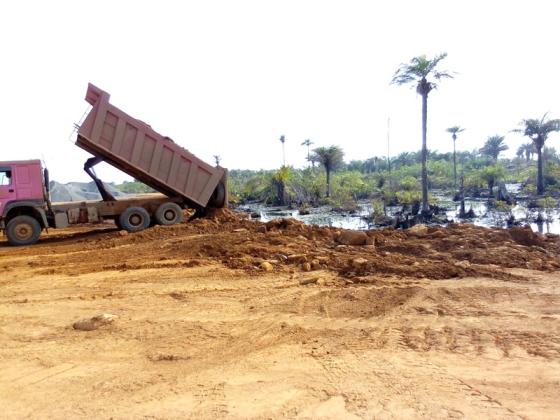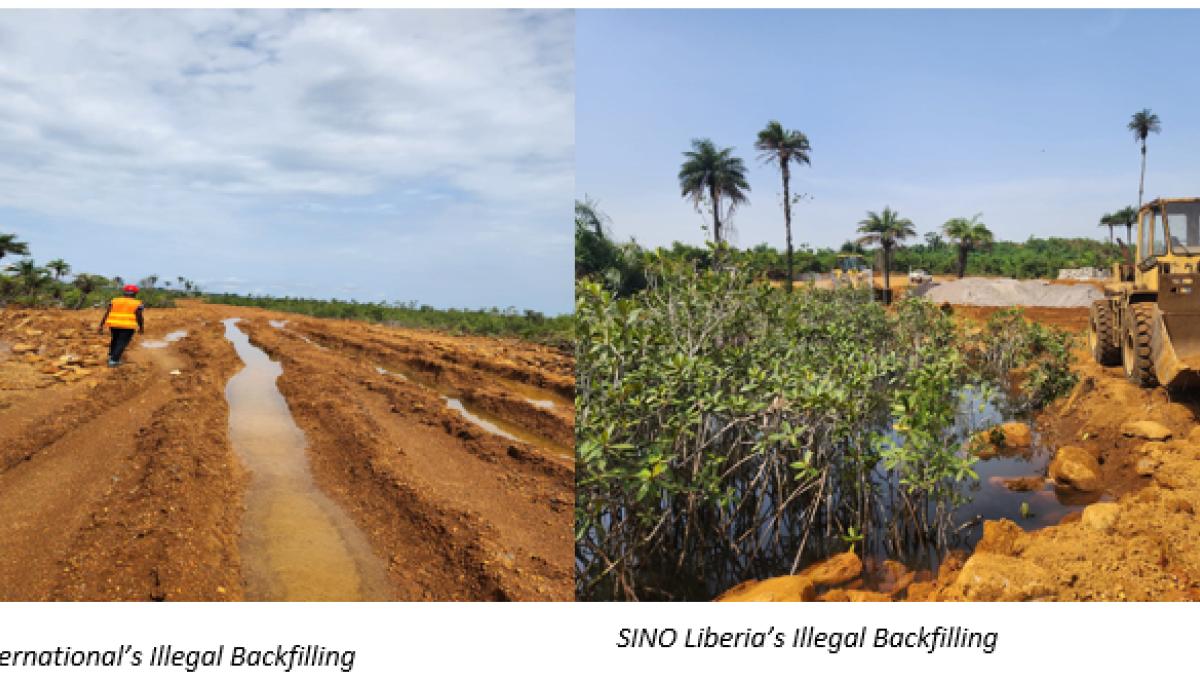Liberia: EAST International Defies EPA’s Halt Order

Work is still ongoing at the operation site of EAST International Construction Company despite a halt order issued by the Environmental Protection Agency (EPA).
The EPA temporarily halted the operations of East International over the weekend for “persistent non-compliance and the defiant posture of the company to adhere to the agency’s recommendations."
Fengshou International, a rock quarry belonging to East International, had earlier requested a permit from the EPA to allow them to construct a 2.0-kilometer road in the Marshall wetland in Schiefflin Town, Margibi County, for its machinery. This request, the EPA claimed, was denied with a warning to desist from the project.
The company exhibited a defiant posture and started backfilling the wetland to build the road, despite the EPA's refusal for them to build a road in the wetland.
However, during a tour organized by the EPA with its inspectors and a team of journalists, the company was still operating. In fact,the wetlands are still being filled up despite the shutdown order by EPA.
Unauthorized backfilling of wetlands is a violation of the Environmental Protection and Management Law of Liberia.Furthermore, the law establishing the EPA provides for the imposition of a penalty for any violation of any provision of the law or any regulation issued in accordance with it..
Section 56 of the Act states that any violation for which no other penalty is specifically provided is punishable by a general penalty of not more than US$50,000 and/or imprisonment for not more than ten years upon conviction.
Generally, as provided under the Environmental Protection and Management Law (EPML), the penalty for violation of any provision is pre-set under such a provision. Interestingly, each preset penalty is enclosed within a mandatory framework, above which the agency lacks the authority to fine.
But EAST International was only asked to restore the wetland without a fine, as enshrined in the EPA’s Act, a mandate the company is failing to adhere to.
“The team has actually been in defiance, and they are still in defiance of the government’s regulations, so, at this point, we will have to actually call a conference again and see what the next step will be,” said Danise Love Dennis-Dodoo, EPA’s Communication Specialist.
According to her, before the EPA fines a company, there must be a conference to ensure that all of the necessary steps are taken.
“There are compliance issues, so at first, you have a conference. Once they come for the conference, the next step is to go through the right steps, so we just have to observe all of the right mechanisms to put that in. That is, by all means, and if they do not stop, the fine will be imposed."
The Marshall Wetland is one of Liberia’s wetlands of international importance under the Ramsar Convention, an international treaty for the protection of wetlands. Liberia is a signatory to the 1971 conve 1971. It is an intergovernmental treaty that provides the framework for national action and international cooperation for the conservation and wise use of wetlands and their resources.
Thousands of species of terrestrial and aquatic plants and animals live in wetlands. Flood protection, improved water quality, reduced shoreline erosion, natural production, recreational opportunities, and aesthetic value are all functional benefits of the wetlands.
Wetlands are among the most productive habitats on earth, providing shelter and nursery areas for commercially and recreationally important animals like fish and shellfish, as well as wintering grounds for mitigating birds. When we drain wetlands, whether for farming, construction, or other commercial uses, we are damaging water filtration and storage systems that ensure clean water supplies for both present and future generations.
This violation by EAST International will not only deprive the residents of safe drinking water but also endanger their homes and cause flooding.
Liberia is recognized as one of the world’s biodiversity hotspots. hosting 40% of the Upper Guinean Forest, which is rich in unique fauna and flora. But the country’s natural resources continue to face threats from human activities such as deforestation for charcoal production, commercial logging, small-scale chainsaw operations, mining, and encroachment of wetlands by farming, dumping of waste, and construction activities.
East International Group, Inc. is the controversial contractor that has been in the news the last few months over its unsatisfactory handling of the Roberts International Airport (RIA) Highway reconstruction project.

